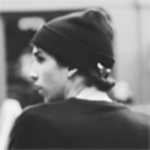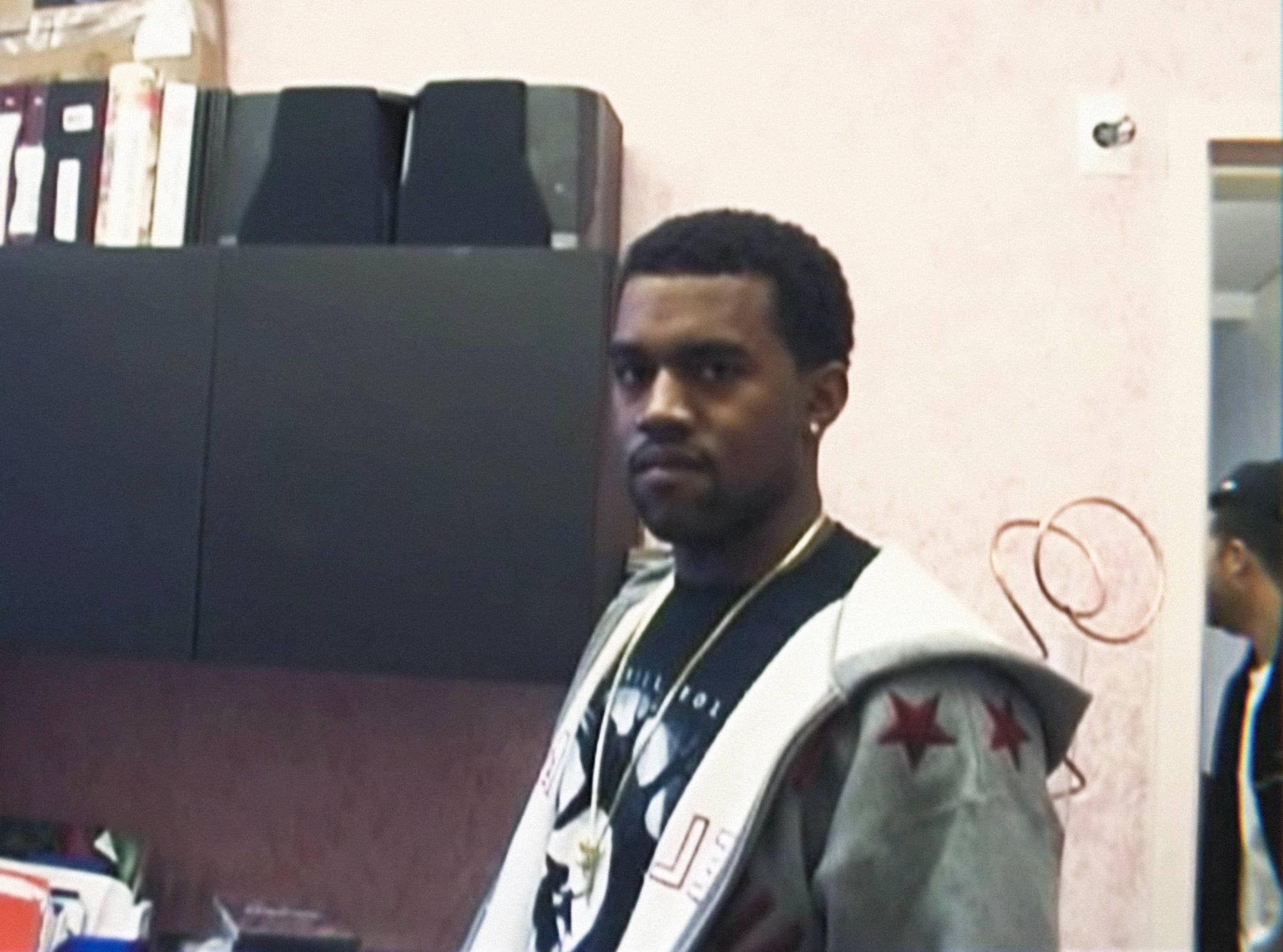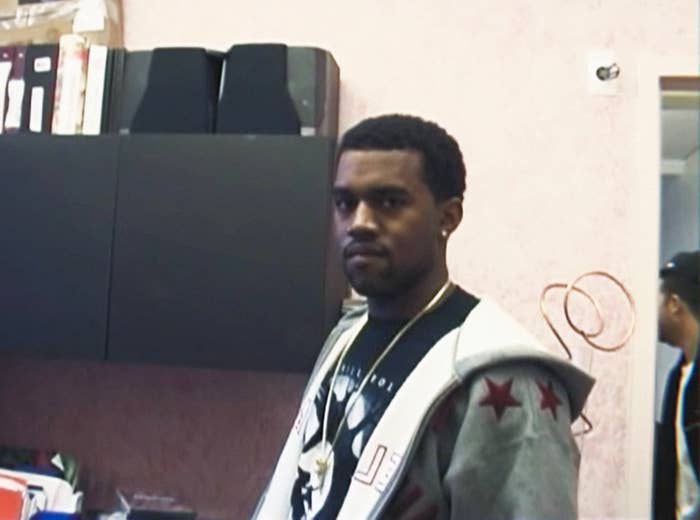
There are a lot of fascinating moments in jeen-yuhs, Netflix’s new documentary about Kanye West. But one scene, in particular, has demanded more attention than the rest.
Roughly 17 minutes into the film, Kanye rushes into the Roc-A-Fella office in New York City and plays “All Falls Down”—a song that would go two-times Platinum and become his first solo Top 10 hit—for anyone who will listen. Instead of blowing everyone away, though, he’s met with apathy. Frankly, no one gives a shit.
It’s an illuminating sequence that shows Kanye’s self-belief and determination at a time when most people still thought of him as “just a producer” and dismissed his skills as a rapper. Many fans at home were stunned to see Roc-A-Fella employees so easily disregard a now-classic song like “All Falls Down,” and the scene immediately went viral. I even wrote a whole essay about how moments like this explain Kanye’s entire career. It’s his superhero origin story and his villain origin story.
There’s a lot more to every story than what first meets the eye, though. The four-minute scene only captures a small portion of Kanye’s interactions with Roc-A-Fella, and the full story is much more nuanced than it appears in the documentary.
I’ve had a lot of questions about the scene since I first saw it, so I called someone who was actually there. Kyambo “Hip Hop” Joshua—Kanye’s manager at the time and former head of A&R at Roc-A-Fella—was one of the first people Ye came across when he walked into the office building.
Hip Hop says Kanye didn’t come into the Roc-A-Fella headquarters often back then, but he did have a habit of performing his songs for anyone who might be able to give him a chance. “Those types of impromptu performances happened all the time,” Hip Hop says. “This was when he was becoming more confident in his music. He was still trying to get those opportunities.”
Kanye showed up unannounced that day, at a time when Roc-A-Fella employees were busy preparing album rollouts for artists like Cam’ron. Since the release of the documentary, many people have criticized one employee in particular, Chaka Pilgrim, for not immediately praising the greatness of a song like “All Falls Down.” But with additional context, a more complete picture comes to light.
For one, the timing wasn’t ideal. As Kanye walks over to Pilgrim’s desk and starts performing, she’s sitting behind a stack of papers and can’t give him her undivided attention (which would have been the case if this had been a scheduled listening session). “Chaka was definitely busy, because she’s behind her desk,” Hip Hop says. “If she’s behind her desk, she’s doing something. Usually, she’s walking around doing a bunch of shit or on a video shoot or something like that.”
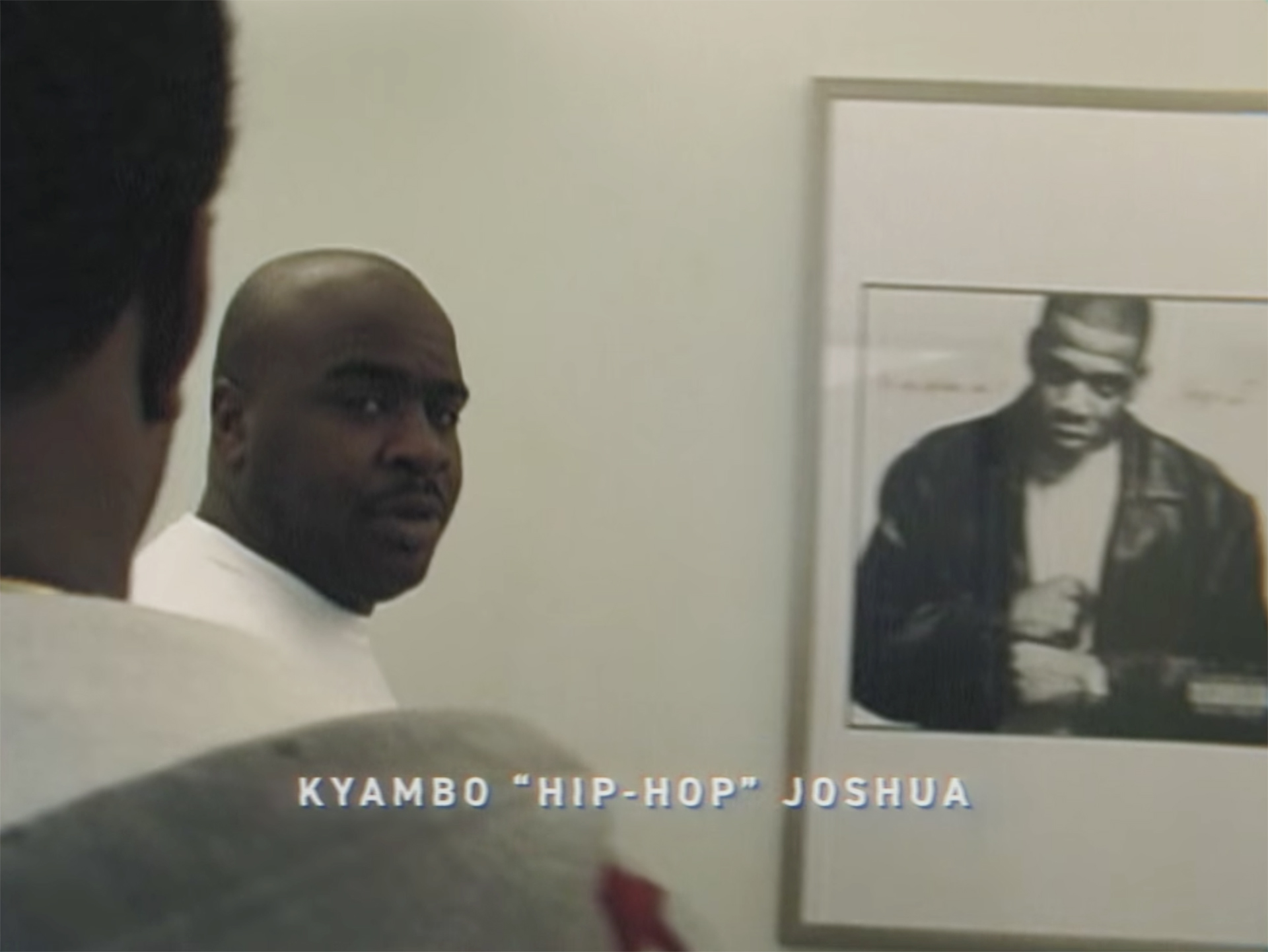
In the clip, Pilgrim has a very serious look on her face, but according to Hip Hop, that doesn’t mean she was angry or uninterested. “Chaka is somewhat of a comedian, so just catching certain clips of her definitely won’t tell the whole story,” he says. “She’s the type of person that will deadpan you, and then laugh. She’ll be singing with you, and then laugh and say something like, ‘Come on, could you please get out of here?’ [Laughs.] We were all close at that time, so it definitely wasn’t like, ‘Hey, get out of here!’”
Some people who saw the clip assumed Pilgrim must have been bad at her job, but in reality, she had an illustrious career, later becoming the president of Roc Nation. “She was one of the main marketing people who handled all the videos, did the movies, and stuff like that,” Hip Hop clarifies. “She worked all the way with Roc Nation, to the point where she was integral in J. Cole’s career as well. She’s been with us from day one. That’s my sister.”
Pilgrim even played a crucial role in Kanye’s own career after he signed with Roc-A-Fella. “She was definitely an important person that eventually helped him with his videos, and did all the marketing for the album and everything,” Hip-Hop says.
Explaining what it was actually like to work at a label like Roc-A-Fella in the early 2000s, Hip Hop points out that employees listened to countless new songs each week, and their reactions to hit songs were more subdued than people might expect.
“We heard a lot of records,” he remembers. “It wasn’t like Roc-A-Fella was a label that hadn’t had a lot of hits. So it wasn’t like we jumped around when records got made. That wasn’t really the mentality. There was a big-ass roster, and people were running around, working on stuff.”
Wayno Clark, an A&R for Roc-A-Fella at the time, shared additional context on Twitter last week, writing, “[Kanye] played this song in the office and did this with a camera crew like 10 times. How many times can you have a crazy reaction to something you’ve heard 10 times? It was kind of annoying at that point.”
“We heard a lot of records. It wasn’t like Roc-A-Fella was a label that hadn’t had a lot of hits. So it wasn’t like we jumped around when records got made.”
Despite the unenthusiastic reception to “All Falls Down” that day, Hip Hop says there were a lot of people in the building who already believed in Kanye’s abilities—especially some of the younger employees. He brings up Wayno, Ramses Francois, Gee Roberson, Plain Pat, and Ferris Bueller as early advocates. And, of course, Hip Hop himself was one of the very first to fight for Kanye, signing the rapper-producer to his management company and ultimately negotiating his deal with Roc-A-Fella.
“People are saying, like, ‘The A&Rs didn’t know…’ But actually, the A&R over there is the one who signed him!” Hip Hop says.
Wayno had similar things to say, tweeting, “When people mention Kanye, please mention Ramses Francois, who was an A&R with myself and Travis Cummings. There might not be footage on the doc but Ramses was one of Kanye’s biggest supporters at Roc, and always took the time to listen to his music—Travis and myself, as well.”
The irony of everyone talking about Roc-A-Fella not noticing the greatness of Kanye is the fact that they did end up signing him and helped launch his career as a rapper. “Roc-A-Fella is the company that did it for him, that was behind him, that signed him, that put everything out,” Hip Hop says. “Those are the people that worked it.”
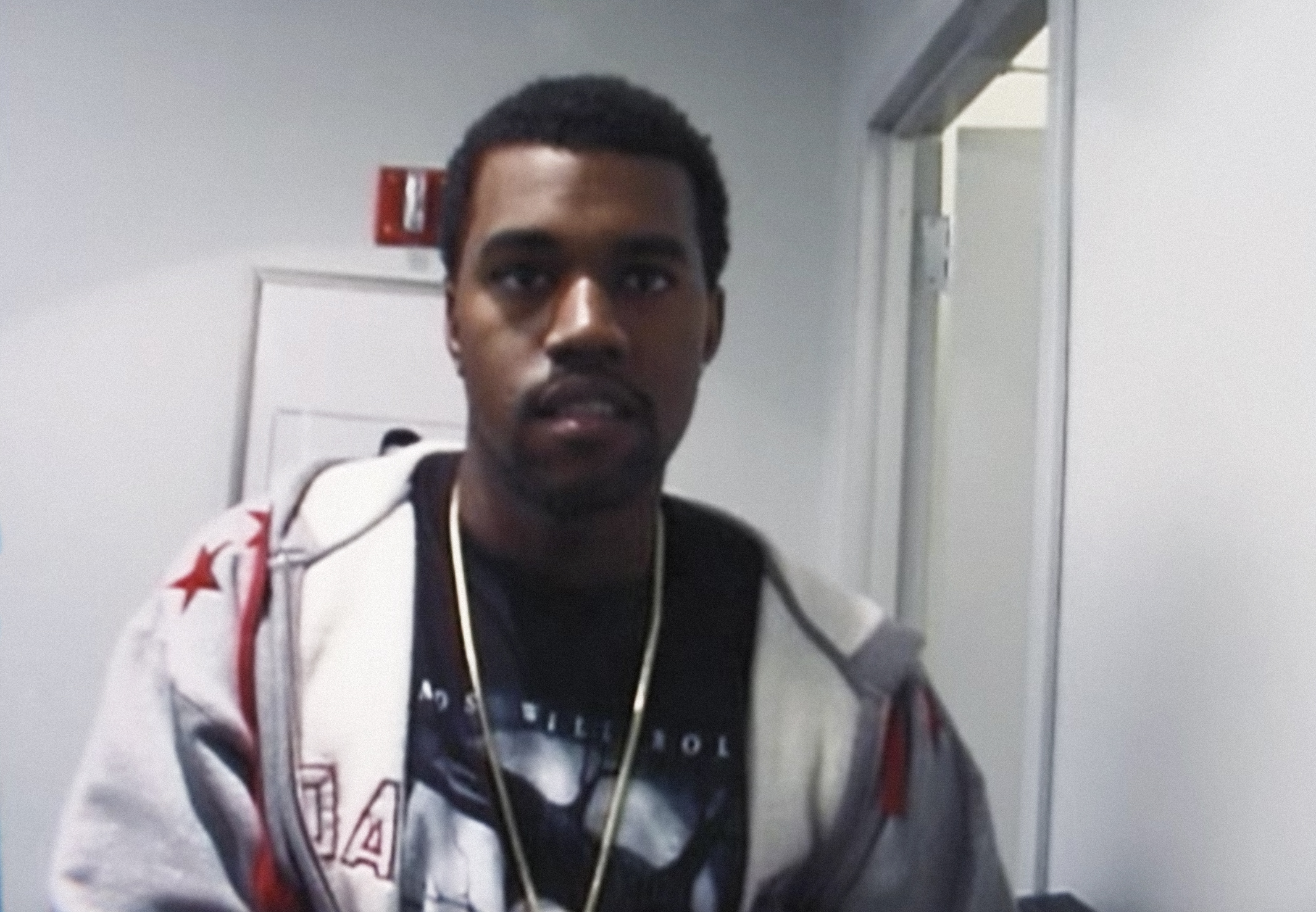
So, the biggest question that remains is: Why didn’t they notice Kanye’s talents as a rapper sooner?
As Hip Hop explains, it all has to do with context. In hindsight, it’s easy to hear a song like “All Falls Down” and see its massive commercial appeal. But at the time, Kanye hadn’t yet built a world around his music, and people hadn’t been properly introduced to his sound. By the time the rest of the world heard “All Falls Down,” they had already become fans of Kanye’s music due to “Through the Wire,” “Slow Jamz,” and the rest of The College Dropout. But in the office that day, Hip Hop says it might have been the very first time Pilgrim had ever heard Kanye’s solo music before.
“Not everyone gets it the first time, like I got it,” Hip Hop says. “‘All Falls Down,’ and a lot of these other records in his storyline make more sense when it came in context after the accident, after ‘Through the Wire,’ and everything else. He changed his life after that day. From that day [in the office] to when that record came out, so much happened. It took time for us to be, like, ‘Not yet, not yet, not yet,’ and him getting better and better, making better songs, developing more as an artist, and eventually figuring out his whole College Dropout thing.”
Hip Hop says he remembers the exact moment when Kanye figured out how to position himself as a rapper, and everything went much more smoothly for him from that point on. However, it didn’t happen until after that day in the office.
“I know exactly when he found the name of his album, The College Dropout,” Hip Hop says. “I was with him. We were watching the Tupac documentary, Resurrection, in the movie theater. When we left the movie theater, everything clicked for him. That’s when he started to really formulate the Kanye West y’all know right now.”
Watching the way Tupac was always unafraid to be himself, Kanye figured out how he wanted to present himself to the world. “That’s when it clicked for him that you can emotionally touch people just by being honest, by being direct, by being relatable,” Hip Hop says. “That’s when he was like, ‘OK, I’m going to be the college dropout. That’s what I am. I don’t go to college, I’m going to chase my dream,’ and all of that. Then Graduation and Late Registration, and it was like a whole scheme to it.”
“It took time for us to be, like, ‘Not yet, not yet, not yet,’ and him getting better and better, making better songs, developing more as an artist, and eventually figuring out his whole College Dropout thing.”
To fully understand what happened in the Roc-A-Fella office that day, it’s also important to remember that Kanye was ahead of his time musically.
“I don’t think people realize how different that song was,” Hip Hop says. “He changed a lot of things, as far as the way labels are, and how people look at different music. And that type of sound—the sample stuff that he was doing at that time—wasn’t popular in the sense of, like, ‘OK, this is going to be the big record.’”
Kanye’s career was a paradigm shift, and it’s difficult for some people to remember what the landscape of rap was like before The College Dropout. In hindsight, early songs like “All Falls Down” seem like more obvious hits than they did at the time. “What we’re seeing is BK and AK: before Kanye and after Kanye,” Hip Hop says. “A lot of people were raised on Ye, and raised on his sound, and his way of thinking.”
At the end of the day, though, the most logical explanation for the awkwardness in the clip is the way Kanye communicated his message. “A lot of people might agree with some of the things Kanye says, but they might not agree with how he does it—just the delivery of it,” Hip Hop explains. “So, people would like the song, but Chaka was probably doing something else and he busted into the office with an impromptu performance. Kanye performing was always a thing, to the point where it turned certain people off.”
Kanye’s tendency to have a great message but communicate it poorly has followed him throughout his career, and it continues to this day.
“Everything that he always was, is everything that he is right now,” Hip Hop says. “It’s all wired into the same exact thing. Like, right now, he has access to his Instagram, so this is what he does. If he’s got something to say, he is going to say it to you, straightforward and right to the point: this is what I want to do, and this is what I want to create. It all comes with that same fuel of getting knocked down, and people not believing in him.”
Hip Hop says that anyone who is shocked by the reaction Kanye got in the office that day should just look at the response he’s getting right now, in 2022. Nothing has changed. “When he’s getting that reaction back then, it’s basically the reaction that y’all give him right now. That’s how I look at it. However she was acting, everybody acts like that with him three or four times in their life.”
As I wrap up my call with Hip Hop, we discuss the jeen-yuhs documentary as a whole. From his perspective, the Roc-A-Fella scene may have misled people about some things, but it was an overall accurate and important part of Kanye’s story. Back then, Kanye was being ignored by the industry and pigeonholed as “just a producer,” and outside of early advocates like Hip Hop, many people didn’t see the vision. So the scene does play an important role, even if Kanye might not have been as misunderstood in the office that day as it initially appeared.
“It was great filmmaking,” Hip Hop says. “But that was something that needed to be captured. That was something that was happening. It might not have been that actual moment, but that kind of thing was definitely happening back then.”
